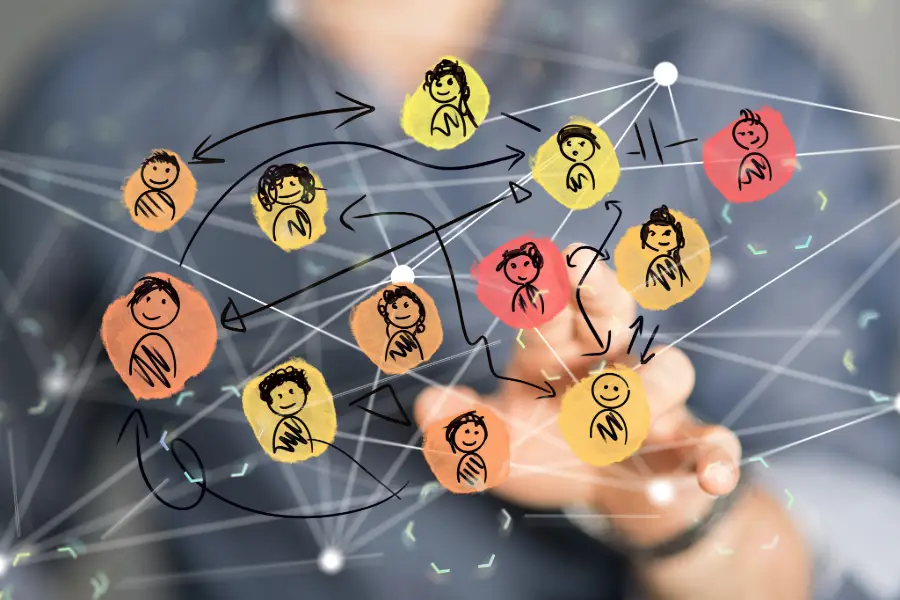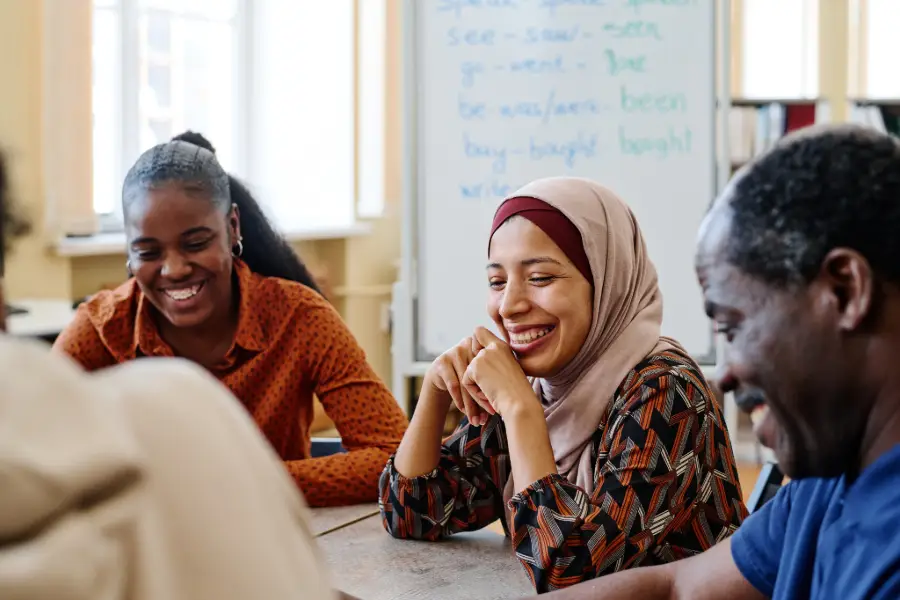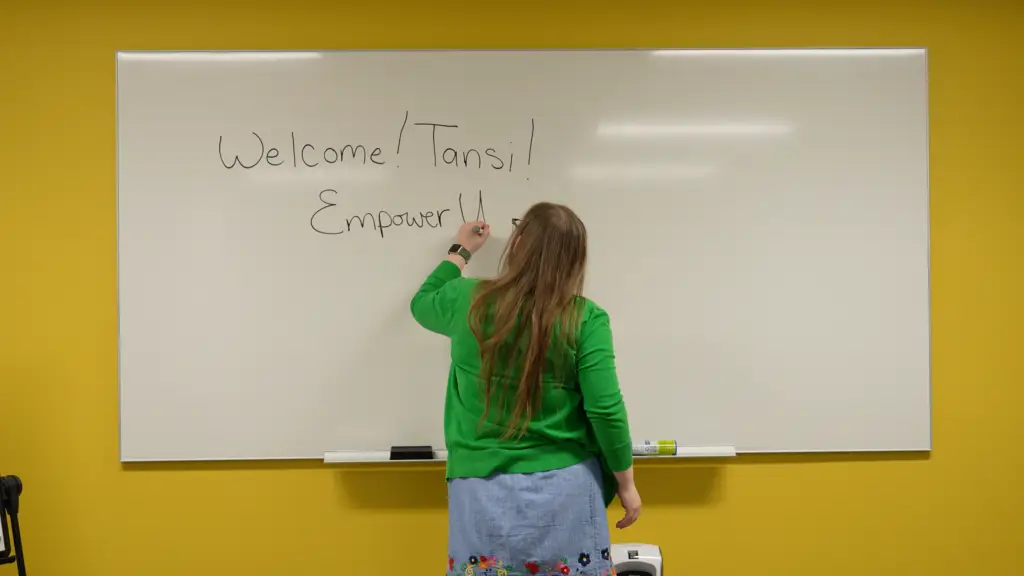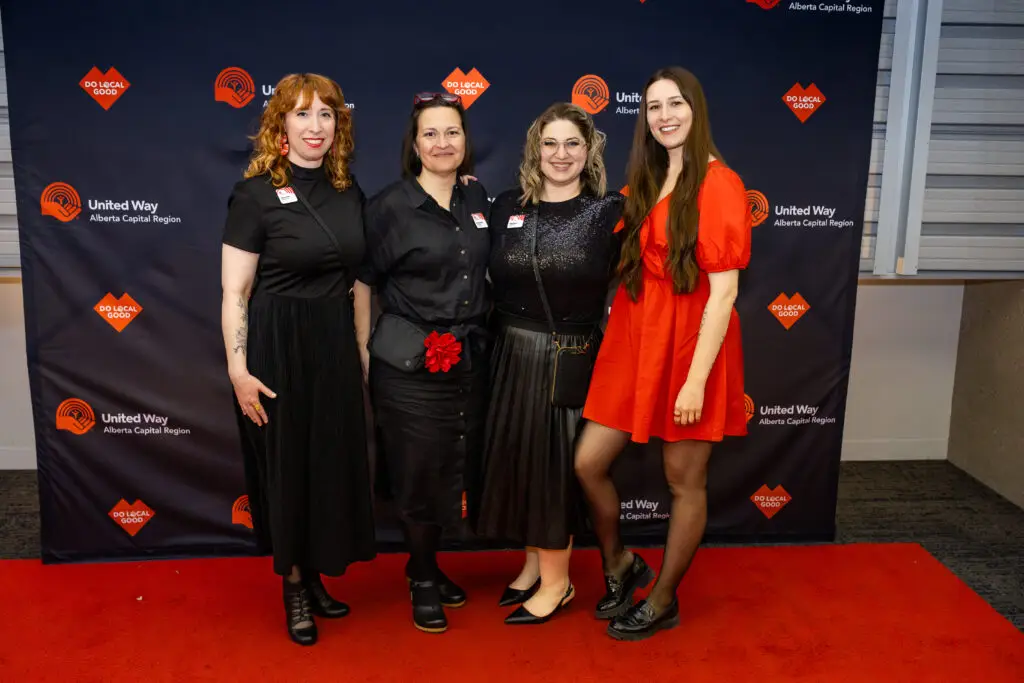November 8, 2024

As United Way works to ensure no one in our community is left behind, we’re learning more about how we can use social innovation approaches to address complex challenges in the Edmonton region.
Social innovation is essential to taking on problems that no organization or sector can solve by themselves. By collaborating with diverse stakeholders and leveraging our partnership network across business, government, and social services sectors, our United Way is uniquely positioned to create innovative and sustainable solutions that strengthen mental well-being, eliminate barriers to education, and empower financial security in our region.
This includes using social finance through the Social Enterprise Fund, convening collective impact approaches through Race-Based Data Table, and collaborating with an informal network of organizations to advance economic reconciliation through events like the Economic ReconciliAction Symposium.
How do we collect data on racial and Indigenous identity to better understand and help address inequities in health care, policing, and education?
United Way staff co-convenes a group of organizations interested in collecting and sharing demographic data in nuanced and ethical ways that help reduce systemic racism.
Edmonton’s Race-Based Data Table (RBDT) is made up of 50+ organizations from across the Alberta Capital Region, including United Way, Edmonton Police Service, Edmonton Public and Catholic Schools, the Government of Alberta, and other social services sector organizations.
Sarah Barber, United Way’s Director of Investment Impact and Research and the RBDT co-chair, shares how the group was formed after an incident where race-based data was collected and shared in a way that spread harm instead of good.
“In the early days of the COVID-19 pandemic, Alberta Health Services was collecting demographic data, including race-based data, when they were doing COVID testing. This was something that the community wanted access to as they hoped the data would demonstrate that some of their communities were bearing a higher burden of infection and required extra funding and resources like preventative outreach, paid sick leave, and PPE,” she recounts.
“Instead, the data was used in a way that further stigmatized already struggling communities by laying blame and accusing some ethnocultural communities of making the spread of COVID-19 worse. The unethical use of this race-based data served galvanized the community to ensure that data wouldn’t be used in that way again. The best way we could think of to simultaneously advocate for, and safeguard against the unethical use of, race-based data was to come together and form the Edmonton Race-Based Data Table.”
The RBTD has worked together to create a Community Charter that sets forth their collective commitment to ethical race-based data practices. It serves as:
The RBDT embraces a community of practice, where they share and learn from one another, supporting advocacy projects and each other’s internal work to advance ethical data practices at their organizations. For example, as 211 Alberta was developing a framework for ethical data collection and use, staff were able to learn from the other members of the RBDT who had done the work, like the Edmonton Public School Board.

How do we sustainably support social enterprises that create training and employment opportunities for equity deserving communities?
United Way is well known for our investments in impact as a grant-maker, collaborative partner, and community connector. We ensure maximum community impact through sector capacity building, agency funding, in-kind donation distribution, and more.
But another way we have been able to contribute to building a stronger social sector, and a more equitable local economy, is through a social finance investment with the Social Enterprise Fund (SEF).
In 2008, SEF was established through the Edmonton Community Foundation and the City of Edmonton to provide financial support to social enterprise organizations across Alberta. United Way was one of the initial investors in the fund, contributing $500,000 to the initial $3 million in assets.
Social finance is like taking a loan from a bank, but it is designed to be easier for social enterprises to access and repay. Applicants must demonstrate that their organization has a social purpose that will benefit the community, and the loan terms are created on a case-by-case basis, tailored to meet the unique needs and challenges of each client.
Jane Bisbee, who recently stepped down as SEF’s Executive Director, says that the fund isn’t just about offering capital to non-profits and social enterprises — even though that is a unique function of the fund when compared to traditional loans.
For her, the exciting aspect of SEF’s work is pointing people to resources that can help them strengthen their business, while also changing the narrative around not-for-profit organizations’ role in the economy as well as the community.
“Social finance is really about trying to make money go where it normally doesn’t want to go. Traditional capital is kind of reluctant to get involved with the not-for-profit sector in particular,” Jane explains.
“I think that’s a mistake and it certainly means that we can’t realistically address big problems like food security, environmental problems, housing, the list goes on. We expect the not-for-profit sector to do a lot of work, and yet we don’t provide them with the tools of finance that we provide to any small business.”
Unlike programming or operational grants that not-for-profits typically access, there are no restrictions on how SEF loans can be used by clients. Once the capital is repaid, it goes back into the fund so to continue supporting other social purpose organizations and entrepreneurs.
Over the last 16 years, the fund has invested $90 million in about 110 projects, allowing organizations to grow while also benefiting public good through their work.
How do we build relationships between Indigenous and non-Indigenous businesses in Edmonton and region and take real, impactful steps toward reconciliation?
Economic reconciliation involves building renewed relationships with Indigenous peoples based on rights, respect, and partnerships. Specifically, it means creating meaningful, mutually beneficial partnerships that drive community economic prosperity. To do this, Indigenous knowledge must be taken as a guiding approach to identify balanced sustainable solutions and actions so all our relations thrive.
To further economic reconciliation in Edmonton, United Way is a supporting partner in the Economic ReconciliAction: A Symposium for Changemakers on November 28, 2024.
“Our goal is to ensure everyone in Edmonton, Indigenous and non-Indigenous, has equal economic opportunities and no one is left behind,” shares Susannah Cameron, United Way’s Director of Impact Strategies and Innovation.
“During the process of developing the symposium with both Indigenous and non-Indigenous organization, we found that while many organizations were working on reconciliation within their own contexts, there was a lack of cross-community collaboration.”
During the symposium, attendees will learn how to create a Reconcili-Action Plan (RAP), a crucial tool for translating the day’s learnings into actionable steps that can be implemented within their organization.
Whether a business is just starting or is already exploring economic reconciliation, this symposium offers people the opportunity to identify local economic challenges, learn from promising examples of reconciliation in action, and leave with commitments to take targeted next steps in this important journey.
United Way is focused on creating collaborative, inclusive, and sustainable solutions to the complex challenges in our region. Our organization’s ability to leverage our network of partners means we can identify problems and build connections across sectors to start addressing issues that hold people back.
By working together through social innovation, we are helping cultivate a healthy and vibrant community, where everyone thrives.

Learn how Empower U equips women with practical financial skills and community support to confidently build independence, security, and lasting financial freedom.

Moved by the strength of women in her life and community, Christie Hutchinson shares what led her to Women United and the movement to create a more equitable future for women and girls.